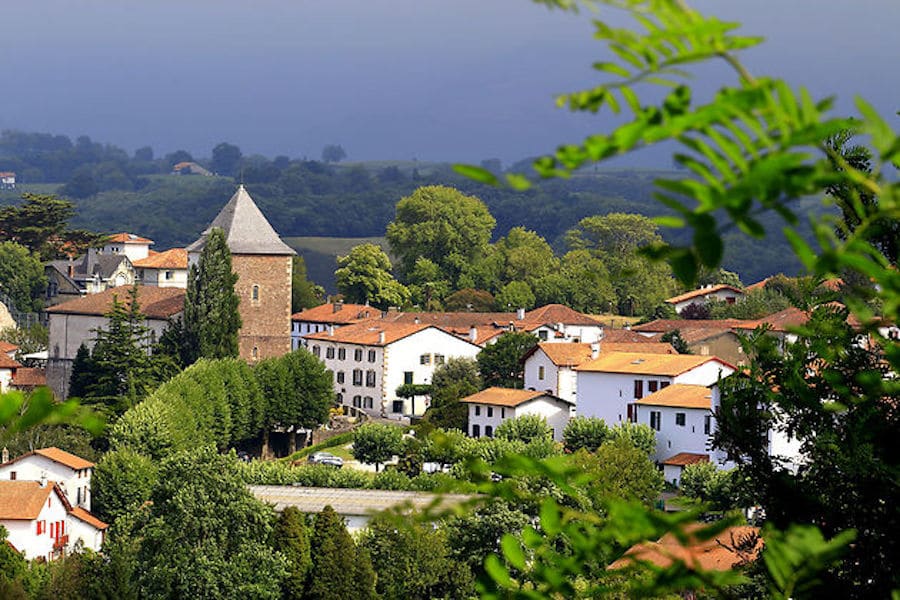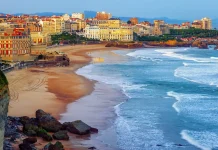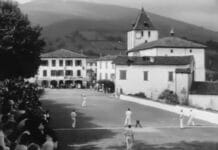This article was translated by John R. Bopp
We’re thrilled to announce to you that there is now an Euskal Pass, a “City Pass” that will help visitors to the part of the Basque Country north of the Pyrenees get to know it better. It’s full of beautiful places to see, and we promise to use the card because, as our regular readers will know, we’re very enthusiastic about this part of the Basque Country. All you have to do is take a look at our Veiwpoints section to see that.
But we’re less thrilled to regarding a point of view about the reality of the situation that worries us, and weakens us, at small and large scales, and we’re referring to using the term “Basque Country” to talk about different realities, and even to talk about what are really only parts of the whole “Basque Country“.
Our reflection is not meant to be a criticism. This matter is not an easy one; if it were, we would have already come up with a solution, and we have none. Every day, we have to face the issue of using appropriate names to refer to our segmented and partitioned country. It’s hard for us, and we’re not even an official government body that is subject to political, administrative, and media pressures.
In 2012, we blogged about a magnificent advertising campaign sponsored by the Bayonne Chamber of Commerce that was, and still is, for us an authentic nightmare. We’re referring to the division of our nation into different administrative realities that not only are the consequence of an unacceptable situation for many Basques, but also, regarding key questions like those of tourism advertising campaigns, giving rise to absurd situations that only serve to weaken our image abroad and confuse those who want to come to our country.
As we stated in the article about our “nightmare”, this situation becomes truly evident in the use of the term “Basque Country” by different individual parts of the Territory.
But that’s not the only case. We have a similar problem with the term “Navarre”, which is a Basque territory divided into two by the border between Spain and France, and the all-too-frequent use of the part south of the Pyrenees as the only true “Navarre”.
We also admit that we are immersed in this problem and that it only really gets irritating when, as in the case of this article, the use of the term “Basque Country” is defined as being limited to the part north of the Pyrenees.
Of course, the same issue often occurs on “our side”. It’s quite easy to hear Basque Public Television, which aims to reach and meet the needs of all Basques in all the territories, use “Basque Country” to refer only to the Basque Autonomous Community, or “Navarre” to talk about the Chartered Community of Navarre alone.
And let’s not even get into matters that never seem to ever get resolved, like talking about the “three Basque capitals”. We always ask ourselves the same “joke”, which three capitals of the six/seven that there are in the whole Basque Country they’re referring to. Of course we know they’re again limiting “Basque Country” to the three provinces of the autonomous community.
We were so happy in 2015 when an agreement was signed by the Basque Government’s Basque Tourism Agency and the Departmental Tourism Committee of Bearn and the Basque Country’s Tourisme 64 signed an initial collaboration agreement to promote tourism together in markets that both were targeting
But it’s clear that not only is the whole of the Basque reality not represented in that agreement (though it’s a very important first step), things progress very slowly. This City Pass that only covers part of the Basque Country is a demonstration of that. So is the stubborn continuity of two official tourism pages (this one and this one) representing two different “Basque Countries” that are competing for the same name. One small bit of improvement that can be found, at least, is that each one has a link at the bottom corner to the other’s site.
We need to stand together, be brave, and above all, be smart. As we said back in 2012 (just a few moons ago), we Basques must not, cannot, live with our backs turned to other Basques. It’s not profitable, in any sense.
Come Viaggiare Informati – 28/7/2019 – Italy
Un City Pass per i Paesi Baschi
I Paesi Baschi lanciano il suo pass per la città: il Pass Euskal. Dà accesso a una quarantina di siti e visite (Cité de l’Océan a Biarritz, museo basco a Bayonne, grotte di Sare, castello di Mauléon …). Totalmente dematerializzato, consiste in un codice QR che può essere stampato o scaricato direttamente nell’app Euskal Pass.
(Follow) (Automatic translation)
Last Updated on Dec 20, 2020 by About Basque Country





